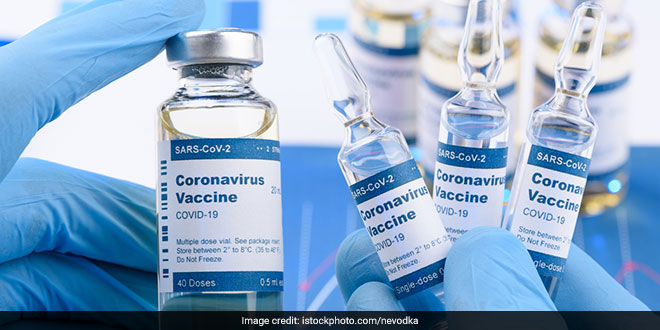Highlights
- CDSCO will process applications for emergency use within 3 working days
- The first 100 beneficiaries shall be assessed for 7 days for safety outcome
- Once found satisfactory, will authorise the applicant to use the vaccine
New Delhi: The Central Government on Thursday (April 15) issued the regulatory pathway in India for COVID-19 vaccines approved for restricted us e by US FDA, EMA, UK MHRA, PMDA Japan or which are listed in WHO Emergency Use Listing (EUL), said the Union Health Ministry. The Central Drugs Standards Control Organisation (CDSCO) headed by Drugs Controller General of India (DCGI) has explained that it prepare detailed guidelines specifying regulatory pathway for approval of foreign approved COVID vaccines based on NEGVAC recommendations.
These guidelines have since been prepared and posted by CDSCO on its website. CDSCO will take steps to widely disseminate these guidelines to the concerned stakeholders, the ministry said.
It said that the applicants for grant of approval for Restricted Use in Emergency situation may be submitted to CDSCO and the application can be made by the foreign manufacturer through its Indian subsidiary or through its authorized agent in India (in case it does not have an Indian subsidiary). The CDSCO will process such applications and take a decision within three working days from the date of submission of the complete application by the applicant. DCGI will issue permission for Restricted Use in Emergency situation if the vaccine will be used as per the guidelines prescribed under the national COVID-19 Vaccination Programme. The first 100 beneficiaries of such vaccines shall be assessed for seven days for safety outcomes before it is rolled out for further Vaccination programme.
Applicant shall initiate conduct of post-approval bridging clinical trials within 30 days of such approval, it said.
As per the existing protocol of CDSCO for batch release of vaccines, each batch of the vaccine will be released by Central Drugs Laboratory (CDL), Kasauli before it can be used as per the guidelines prescribed under the National Covid-19 vaccination programme. The applicant will only use the COVID vaccine, after receipt of CDL approval, initially only on 100 beneficiaries and submit the safety data to CDSCO. CDSCO will then review the safety data submitted by the applicant, and once found satisfactory, will authorise the applicant to use the vaccine.
CDSCO will approve the protocol for the bridging trial in consultation with Subject Expert Committee (SEC) within 7 days of the receipt of the proposal, it further said.
The applicant will conduct the bridging trial within the timelines specified in the approved protocol, and submit data generated in the bridging trial to CDSCO and after the receipt of the bridging trial results, the DCGI will review the permission granted for Restricted Use in Emergency situation. The Union Government on April 13, 2021, had approved a significant streamlining and fast-tracking of the regulatory system for COVID-19 vaccines approved for restricted use by US FDA, EMA, UK MHRA, PMDA Japan or which are listed in WHO Emergency Use Listing (EUL).
The government said that this decision will facilitate quicker access to such foreign vaccines by India and would encourage imports including import of bulk drug material, optimal utilization of domestic fill and finish capacity, etc., which will, in turn, provide a fillip to vaccine manufacturing capacity and total vaccine availability within the country.
(This story has not been edited by NDTV staff and is published from a syndicated feed.)
NDTV – Dettol Banega Swasth India campaign is an extension of the five-year-old Banega Swachh India initiative helmed by Campaign Ambassador Amitabh Bachchan. It aims to spread awareness about critical health issues facing the country. In wake of the current COVID-19 pandemic, the need for WASH (Water, Sanitation and Hygiene) is reaffirmed as handwashing is one of the ways to prevent Coronavirus infection and other diseases. The campaign highlights the importance of nutrition and healthcare for women and children to prevent maternal and child mortality, fight malnutrition, stunting, wasting, anaemia and disease prevention through vaccines. Importance of programmes like Public Distribution System (PDS), Mid-day Meal Scheme, POSHAN Abhiyan and the role of Aganwadis and ASHA workers are also covered. Only a Swachh or clean India where toilets are used and open defecation free (ODF) status achieved as part of the Swachh Bharat Abhiyan launched by Prime Minister Narendra Modi in 2014, can eradicate diseases like diahorrea and become a Swasth or healthy India. The campaign will continue to cover issues like air pollution, waste management, plastic ban, manual scavenging and sanitation workers and menstrual hygiene.
[corona_data_new]





























